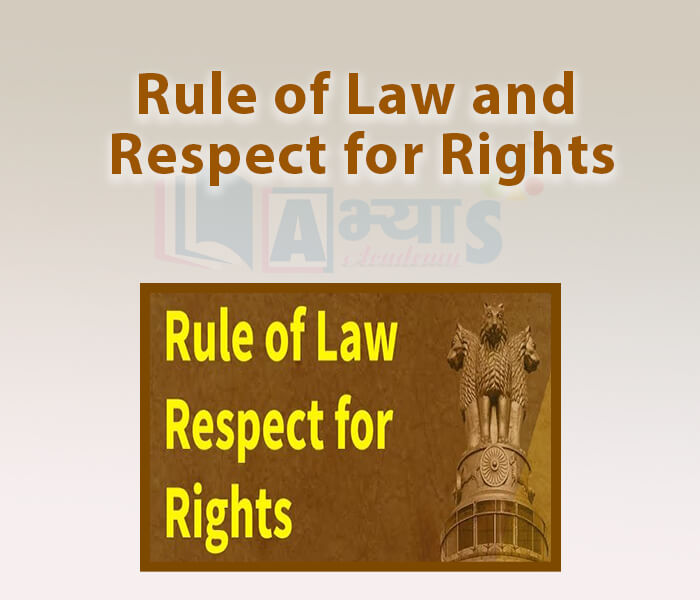Rule of Law and Respect for Rights













Rule of Law and Respect for Rights
Rule of Law and Respect for Rights: From the case of Zimbabwe, this feature of democracy can be understood in a better way. Zimbabwe attained independence from White minority rule in 1980. From then onwards, the country has been ruled by ZANU-PF. It is the party that led the freedom struggle. The party leader, Robert Mugabe, has been the President of the country since independence.
Elections are always won by this party through violence and harassment of the opposition politicians workers and journalists. Protests against the President were illegal and the government does not heed court judgements which went against it. Thus, there is no rule of law and citizen’s rights are not respected. The example of Zimbabwe shows that popular approval of the rulers is necessary but not sufficient in democracy. Popular governments can be undemocratic and popular leaders can be autocratic.
In a democracy, the Rule of law states that all laws apply equally to all citizens of the country and no one can be above the law. The law is equal and similar for all, be it a government official, a wealthy person or even the President, none of them are above the law. Hence, the law cannot differentiate between people on the basis of their religion, caste or gender. Nevertheless, any crime or violation of law has to be established after which a specific punishment is given.
Respect for rights mean that every citizen of a democratic state is provided with some important rights (fundamental rights) and it is a duty of everybody to respect each other's rights and comply with them.
How does the rule of law protect individual rights?
The laws are clear, publicized, and stable; are applied evenly; and protect fundamental rights, including the security of persons and contract, property, and human rights. The processes by which the laws are enacted, administered, and enforced are accessible, fair, and efficient.
The three stages in the growth of the modern democracy is | |||
| Right Option : D | |||
| View Explanation | |||
The Hindu Succession Act gurantees | |||
| Right Option : B | |||
| View Explanation | |||
The most important stage in the growth of the modern democracy is | |||
| Right Option : A | |||
| View Explanation | |||
Students / Parents Reviews [10]
Abhyas Methodology is very good. It is based on according to student and each child manages accordingly to its properly. Methodology has improved the abilities of students to shine them in future.

Manish Kumar
10thIt was good as the experience because as we had come here we had been improved in a such envirnment created here.Extra is taught which is beneficial for future.

Eshan Arora
8thMy experience was very good with Abhyas academy. I am studying here from 6th class and I am satisfied by its results in my life. I improved a lot here ahead of school syllabus.

Ayan Ghosh
8thIt has a great methodology. Students here can get analysis to their test quickly.We can learn easily through PPTs and the testing methods are good. We know that where we have to practice

Barkha Arora
10thI have spent a wonderful time in Abhyas academy. It has made my reasoning more apt, English more stronger and Maths an interesting subject for me. It has given me a habbit of self studying

Yatharthi Sharma
10thOne of the best institutes to develope a child interest in studies.Provides SST and English knowledge also unlike other institutes. Teachers are co operative and friendly online tests andPPT develope practical knowledge also.

Aman Kumar Shrivastava
10thAbout Abhyas metholodology the teachers are very nice and hardworking toward students.The Centre Head Mrs Anu Sethi is also a brilliant teacher.Abhyas has taught me how to overcome problems and has always taken my doubts and suppoeted me.

Shreya Shrivastava
8thMy experience with Abhyas academy is very good. I did not think that my every subject coming here will be so strong. The main thing is that the online tests had made me learn here more things.

Hiya Gupta
8thAbhyas is a complete education Institute. Here extreme care is taken by teacher with the help of regular exam. Extra classes also conducted by the institute, if the student is weak.

Om Umang
10thA marvelous experience with Abhyas. I am glad to share that my ward has achieved more than enough at the Ambala ABHYAS centre. Years have passed on and more and more he has gained. May the centre flourish and develop day by day by the grace of God.
